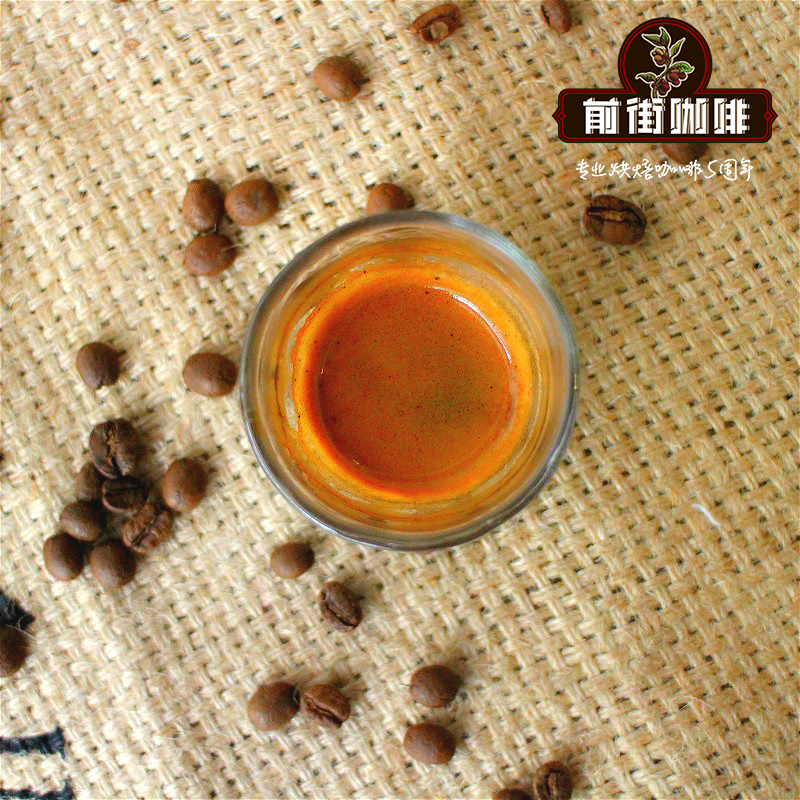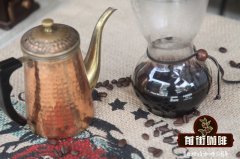How to sell Hawaiian Kona Coffee? introduction to the World sales of Hawaiian Kona Coffee

Professional coffee knowledge exchange more coffee bean information please follow the coffee workshop (Wechat official account cafe_style)
Hawaii Kona Coffee won the title of number one in the world in 2001, and then new products such as Blue Mountain and cat shit appeared, which is the only top coffee produced in the United States, but just like Maotai Liquor, not all the coffee grown in Kona is award-winning coffee. The award-winning Kona coffee is called JOE COFFEE. Pure coffee of this brand cannot be bought in the supermarket or outside. It can only be bought in this coffee garden. The price is 50 yuan / 8 ounces.
[Overview]
Kona coffee, produced in the Kona area of Hawaii, is a rare species that can only be grown on volcanic slopes. Taste strong, mellow, and slightly with a kind of wine aroma, the flavor is very special. The selected Kona coffee has a moderate sour taste and a gentle and full-bodied taste, as well as a unique mellow flavor. As the output is decreasing, the price is catching up with Blue Mountain Coffee.
The strip off the coast of Kona, Hawaii, produces the best coffee in the world and is among the best, with less than 2600 acres of coffee producing 2 million pounds of beans a year. With its aroma, unique taste and outstanding regional characteristics, Kona Coffee stands out in the international competition. People who like Kona coffee can make Kona coffee in person on the street of Kona Coffee.
Most of the coffee that calls itself "Kona" now contains less than 5% of the real Hawaiian Kona coffee. Another good Hawaiian coffee can be found in the United States-Hawaiian Kaj Farm Coffee (KaiFarms).
[history]
The earliest settlers in Hawaii arrived here between 300 and 400 AD, and historians speculated that they were from the Marcos Islands. People are scattered into different tribes that live on the island and are led by hereditary chiefs. The earliest Hawaiian residents created the rich musical culture of Hawaii, although not many words have been preserved.
Europeans discovered Hawaii by accident. They were looking for a legendary passage to the east where spices were produced, but they found the richest pearl in the Pacific Ocean.
A captain named James Cook landed at Kauai in 1778 to resupply his ship. He encountered severe cold and storms on his way back, so he had to return to Hawaii at the beginning of the next year and anchor on a beach in Kona. Since then, the Hawaiian islands have become an important port of call on world trade voyages. The chiefs of Hawaii exchanged sandalwood, the island's specialty, for weapons, goods and livestock with passing ships. From the 1820s, Western religion began to spread widely on the island, and many churches built at that time are still in use today.
Hawaii is a paradise for tasting and buying coffee. Each island has several unique places for tourists and local residents to taste and buy coffee, including comfortable and warm shops and comprehensive centers to introduce coffee knowledge. In Hawaii, you can watch the fiery sunset sink into the red-orange sea, feel the fresh air filled with the scent of flowers, and sit by the sea and drink a cup of coffee. I'm afraid there is no place in the world that can offer you such enjoyment.
In 1813, a Spaniard first grew coffee in the ManoaValley Valley of Oahu, which is today the main campus of the University of Hawaii. In 1825, an English agronomist named John Wilkinson transplanted some coffee from Brazil to grow in the coffee garden of Chief Birch on the island of Oahu. Three years later, an American missionary named Samuel Riveland Rags brought the branches of the coffee tree from Birch Emirates Garden to Kona, a descendant of the Arabica coffee tree that first grew on the Ethiopian plateau. To this day, Kona Coffee still carries on its noble and ancient lineage.
[growth environment]
The excellent quality of Hawaiian Kona coffee should be suitable for the right geographical location and climate. Coffee trees grow on the slopes of volcanoes, and their geographical location ensures the altitude needed for coffee to grow; the dark volcanic ash soil provides the necessary minerals for coffee.
This is probably due to the fact that Kona Island is rich in volcanic black mud with moderate acidity, rich mineral content and suitable water content. And every afternoon, a cloud floats over the island of Kona to block out the sun to protect fragile coffee saplings.
The climate is very suitable, the sun in the morning gently passes through the air full of water vapor, in the afternoon, the mountains will become more humid and foggy, and the white clouds surging in the air are natural umbrellas for coffee trees, and the evening will become sunny and cool.
Because of the suitable natural conditions, the average yield of Kona coffee is very high, reaching 2240 kg per hectare, while the yield of coffee per hectare in Latin America is only 600 Murray 900 kg.
[taste]
Hawaiian Kona Coffee is fresh, crisp, medium-bodied, slightly sour and full-bodied, with a long finish. Most rarely, Kona Coffee has a blend of wine, fruit and spice, as fascinating as the colorful colors of this volcanic archipelago.
Generally speaking, the taste of Kona coffee belongs to a relatively mild category, so that some people think that this gentleness is synonymous with insipid, that Kona is too refreshing and too simple.
But if you are the kind of person who must slowly get into the state with the aroma of coffee before tasting it, Kona is the right coffee for you. Because it is not as mellow as Indonesian coffee, not as full-bodied as African coffee, nor as rugged as Central and South American coffee, Kona coffee is like a girl in the Hawaiian sun breeze, fresh and natural, lukewarm.
Qianjie coffee: Guangzhou bakery, the store is small but a variety of beans, you can find a variety of unknown beans, but also provide online store services. Https://shop104210103.taobao.com
Important Notice :
前街咖啡 FrontStreet Coffee has moved to new addredd:
FrontStreet Coffee Address: 315,Donghua East Road,GuangZhou
Tel:020 38364473
- Prev

Hawaiian Kona Coffee Butter, right? Hawaiian Kona Coffee Queen Manor Farm
For more information on coffee beans, please follow the Coffee Workshop (Wechat official account cafe_style). Hawaiian Kona Coffee, produced in the Kona region of Hawaii, is a rare species that can only be grown on volcanic slopes. Taste strong, mellow, and slightly with a kind of wine aroma, the flavor is very special. The selected Kona coffee has a moderate sour taste and a gentle and rich taste.
- Next

Hawaii Kona Coffee Brand Recommendation_Guangzhou where to buy Hawaii Kona Coffee_Kona Coffee Features
Hawaii is the only state in the United States where coffee is grown. These coffees are grown on the five main islands of the Hawaiian archipelago: Oahu, Hawaii, Maui, Kauai and Mauroka. Coffee produced on different islands also has its own characteristics.
Related
- Detailed explanation of Jadeite planting Land in Panamanian Jadeite Manor introduction to the grading system of Jadeite competitive bidding, Red bid, Green bid and Rose Summer
- Story of Coffee planting in Brenka region of Costa Rica Stonehenge Manor anaerobic heavy honey treatment of flavor mouth
- What's on the barrel of Blue Mountain Coffee beans?
- Can American coffee also pull flowers? How to use hot American style to pull out a good-looking pattern?
- Can you make a cold extract with coffee beans? What is the right proportion for cold-extracted coffee formula?
- Indonesian PWN Gold Mandrine Coffee Origin Features Flavor How to Chong? Mandolin coffee is American.
- A brief introduction to the flavor characteristics of Brazilian yellow bourbon coffee beans
- What is the effect of different water quality on the flavor of cold-extracted coffee? What kind of water is best for brewing coffee?
- Why do you think of Rose Summer whenever you mention Panamanian coffee?
- Introduction to the characteristics of authentic blue mountain coffee bean producing areas? What is the CIB Coffee Authority in Jamaica?

